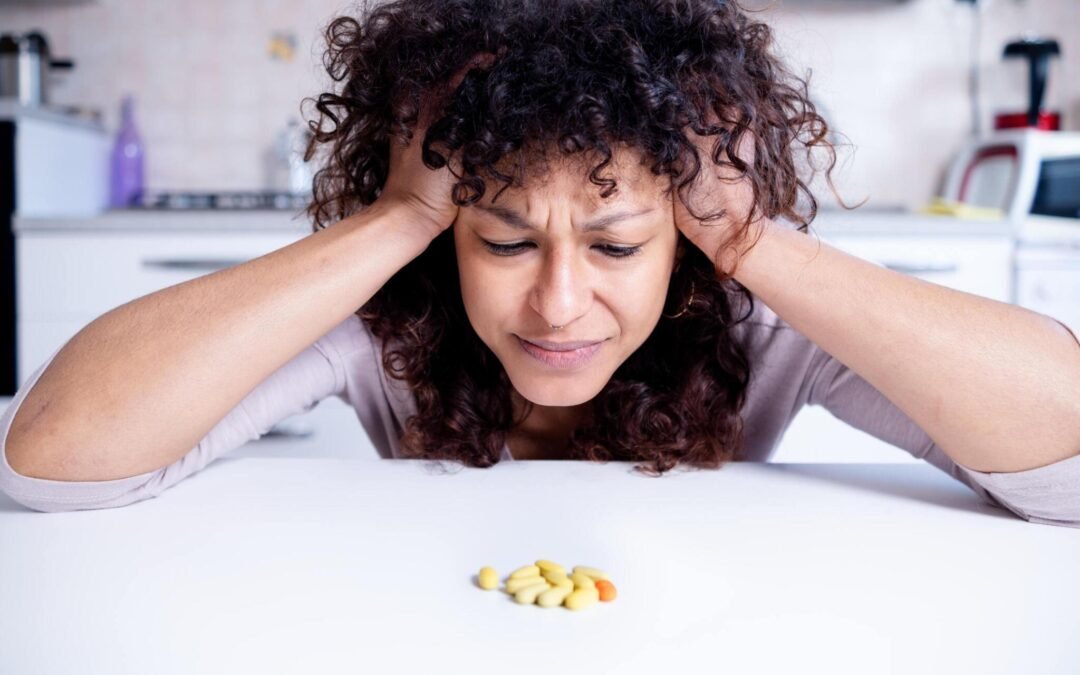Depression is a complex mental health condition that can manifest through various symptoms affecting a person’s thoughts, emotions, and physical well-being. It’s essential to recognize these signs to seek appropriate support and treatment.
Here are common symptoms of depression:
1. Persistent Sadness: A pervasive feeling of sadness that persists for an extended period, often without an apparent reason.
2. Loss of Interest or Pleasure: Diminished interest or pleasure in once enjoyable activities, leads to social withdrawal and isolation.
3. Changes in Sleep Patterns: Insomnia or an increased need for sleep, with disruptions to the regular sleep cycle.
4. Fatigue and Low Energy: Persistent feelings of fatigue, even after adequate rest, and a general lack of energy for daily activities.
5. Appetite Changes: Significant changes in appetite, leading to weight loss or gain. Some individuals may experience a loss of interest in food, while others may engage in emotional eating.
6. Difficulty Concentrating: Challenges in focusing, making decisions, and retaining information, often lead to decreased productivity.
7. Feelings of Worthlessness or Guilt: Persistent negative thoughts about oneself, are accompanied by feelings of guilt or worthlessness.
8. Irritability or Restlessness: Increased irritability, restlessness, and a tendency to become easily agitated, especially in previously manageable situations.
9. Physical Symptoms: Unexplained aches and pains, headaches, and other physical complaints without apparent medical cause.

10. Thoughts of Death or Suicidal Ideation: Persistent thoughts of death, dying, or suicidal thoughts, which require immediate attention and intervention.
11. Social Withdrawal: Avoidance of social activities, friends, and family, leads to isolation and a lack of social support.
12. Difficulty Sleeping or Excessive Sleeping: Changes in sleep patterns, including difficulty falling asleep, staying asleep, or sleeping excessively.
F.A.Q:
Is medication the only effective treatment for managing depression?
No, there are various approaches, including therapy, lifestyle changes, and support networks. The effectiveness depends on individual factors, and a combination of methods is often beneficial.
How long does it take to see improvements when implementing lifestyle changes for depression management?
Results vary, but consistent implementation of lifestyle changes can lead to improvements over weeks to months. Patience and persistence are crucial.
Can I manage depression without professional help?
While self-help strategies are valuable, professional guidance, such as therapy or counseling, significantly enhances the effectiveness of depression management.
What role does exercise play in managing depression?
Regular exercise has proven benefits for mental health, releasing endorphins and positively impacting mood. It is an integral part of a holistic approach to depression management.
How do I find a support system to help manage depression?
Seek connections with friends, family, or support groups. Many communities offer online and in-person support networks where individuals share experiences and coping strategies.
Can I manage depression without medication if it's not severe?
In mild cases, therapy and lifestyle changes may be sufficient. However, consulting with a mental health professional is crucial to determine the most appropriate approach for your situation.


Recent Comments